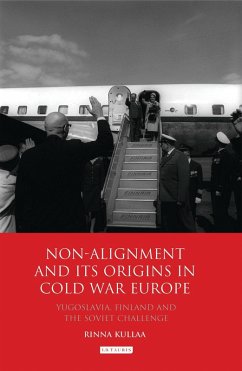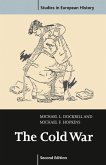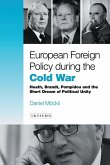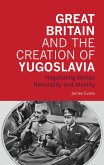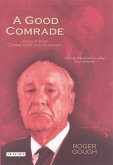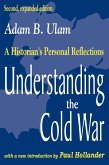After World War II, Europe stood divided between two clearly defined and competing ideologies and systems of government. Within this context of confrontation and mutual hostility between the United States and the Soviet Union, Rinna Kullaa provides a unique analysis of the attempts of two European states to successfully avoid absorption into the Soviet bloc. This book explores the relations of Yugoslavia and Finland both with the Soviet Union, and with each other, as they strove to preserve and create their independence. Whilst at first attempting the neutralism strategy employed by Finland, in the face of Soviet hostility, Tito's Yugoslavia instead led the way to the founding of the Non-Aligned Movement in 1961. Kullaa's crucial analysis of the formative period of the Cold War will be of vital interest to students and researchers of International Relations, European History, the Cold War and diplomacy.
Bitte wählen Sie Ihr Anliegen aus.
Rechnungen
Retourenschein anfordern
Bestellstatus
Storno

